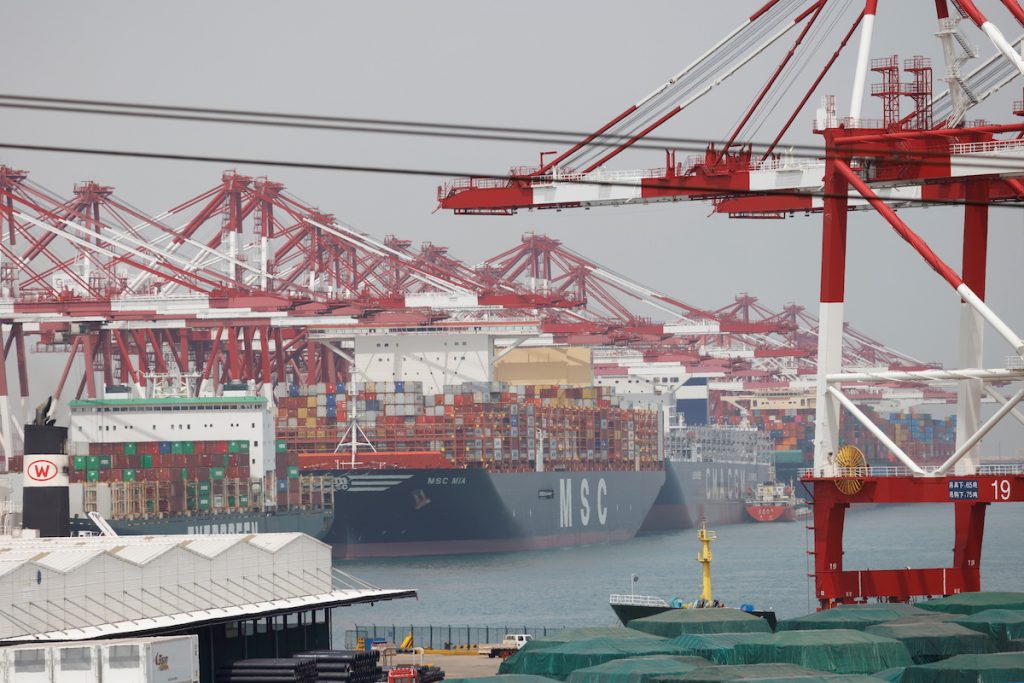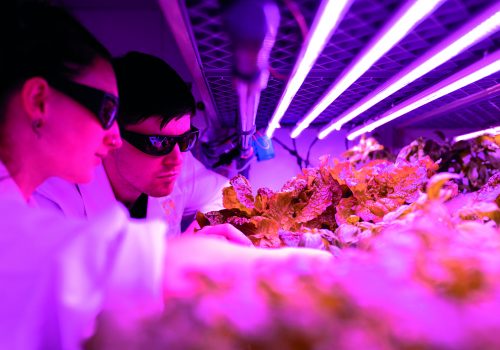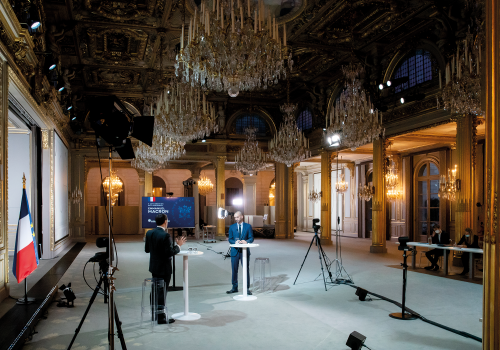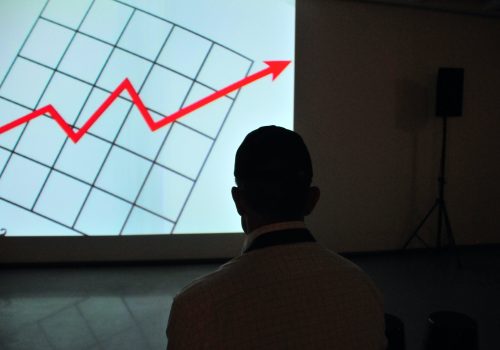Transforming for a new era in the global economy.
The GeoEconomics Center operates at the nexus of economics, finance, and foreign policy. It seeks to shape a better global economic future for the United States and its allies and restore faith in democratic capitalism at a time of global economic uncertainty. The center is organized around three key pillars of work: the future of capitalism, the future of money, and the Economic Statecraft Initiative.
The GeoEconomics Center was formally launched in December 2020 at a keynote event with European Central Bank President Christine Lagarde, but the team began their new mission with the onset of the COVID-19 crisis in March 2020. As the pandemic took hold across the world, the center created three flagship reports which gained international attention: the Central Bank Digital Currency Tracker, the COVID-19 Economy Recovery Tracker, and the Global Quantitative Easing Tracker, built to analyze changes and developments in global monetary policy. In October, the center debuted the China Economic Spotlight, featuring expert analysis on the economic, financial, and regulatory measures the United States has taken against China. The center’s private financial note, “Guide to the Global Economy,” kicked off in April and breaks down complex economic issues in a fun, accessible format.

In 2021, the GeoEconomics Center will continue to develop a rich set of programs and thought leadership. At a time of global economic recession and fractured US politics, the center’s mission has never been more important. On the domestic front, the center will deepen its inclusive growth work to address the challenge of achieving sustainable growth in the postpandemic world. The work will examine the economic fractures that existed before COVID-19, including the rise of income, gender, racial, and intergenerational inequality within advanced economies.
On the international front, the center will launch the China Pathfinder project to create a shared language for understanding the Chinese economy. The China Pathfinder project scores China and other open market economies across six key areas and presents an objective picture of China relative to the world. It will also examine the changing responsibilities of multinational companies and the role of environmental, social, and governance reform in restoring confidence in capitalism.
The center will continue to develop content and programming on the future of money, with projects focused on the rise of digital currencies, the international role of the euro, and the trajectory of the dollar as the world’s reserve currency.
In December 2021, the center will officially launch the Economic Statecraft Initiative to pursue practitioner-focused analysis on investment security, tariff remedies, illicit finance, export controls, and market regulation. Its new, popular “Global Sanctions Dashboard” will harness unique data sets to provide insights on sanctions unavailable anywhere else. In longstanding Atlantic Council tradition, the initiative will tackle the future of transatlantic trade, competition policy, and regulatory harmonization, with an eye towards US response to China.
All of this work will underpin the GeoEconomics Center’s focus on China and aim to inform smart policy action to meet the most important challenge the United States has faced since World War II.
Next
Read the full report
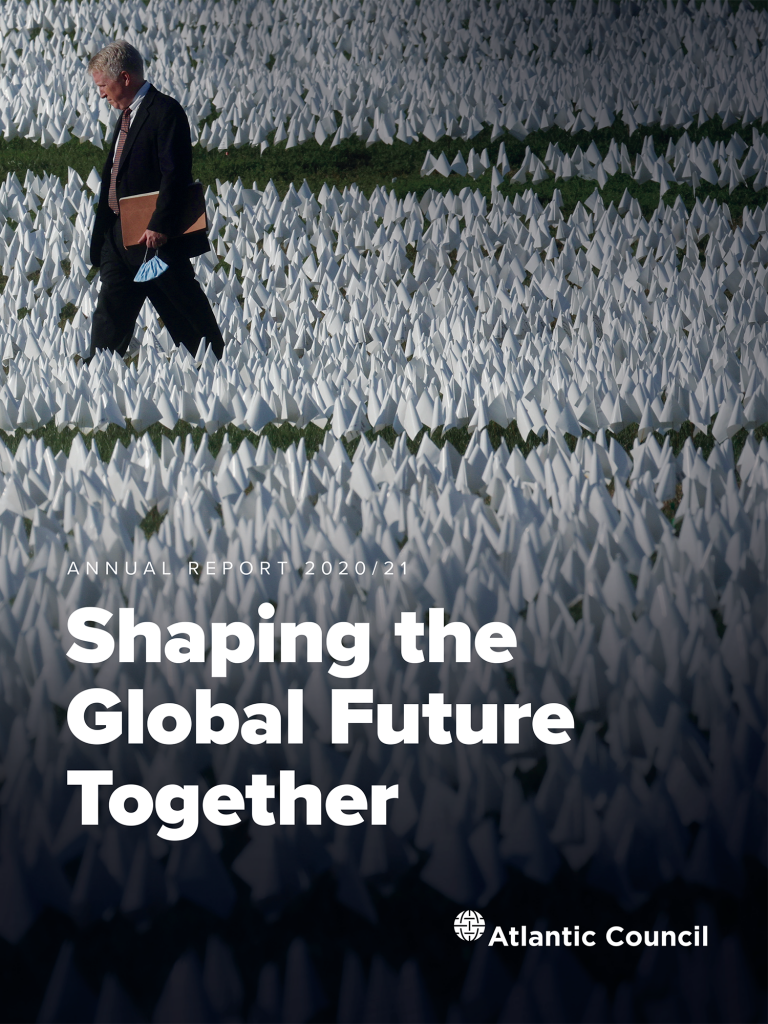
Annual Report 2020/2021
As we celebrate the 60th anniversary of our founding, the challenges we face
are daunting, but the Atlantic Council has responded with innovative and
consequential work. Here’s how we are working together to shape the global
future.
Image: Container ships are seen at Qingdao port in Shandong province, China, following an oil spill in the Yellow Sea caused by a collision between tanker A Symphony and bulk vessel Sea Justice off the port, April 28, 2021. REUTERS/Carlos Garcia Rawlins
